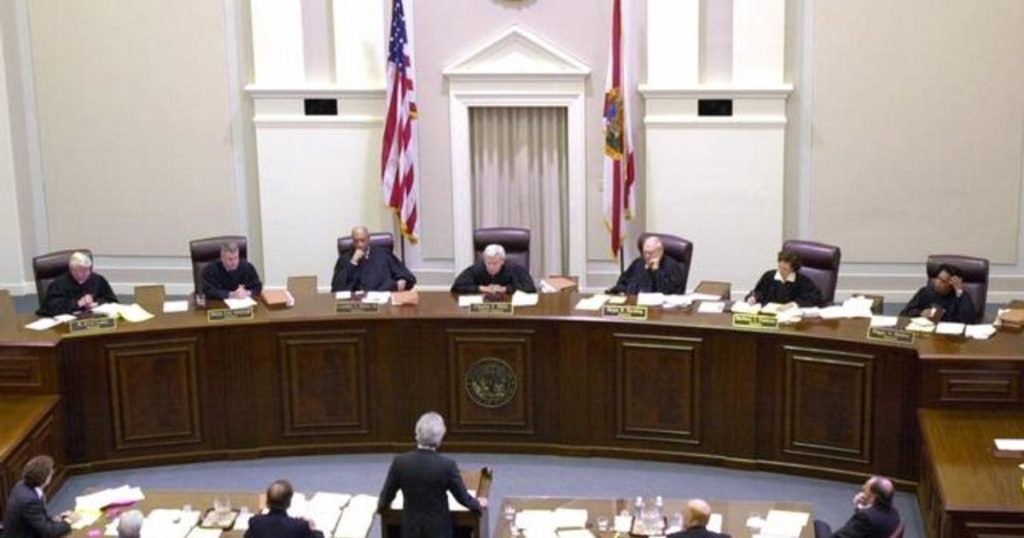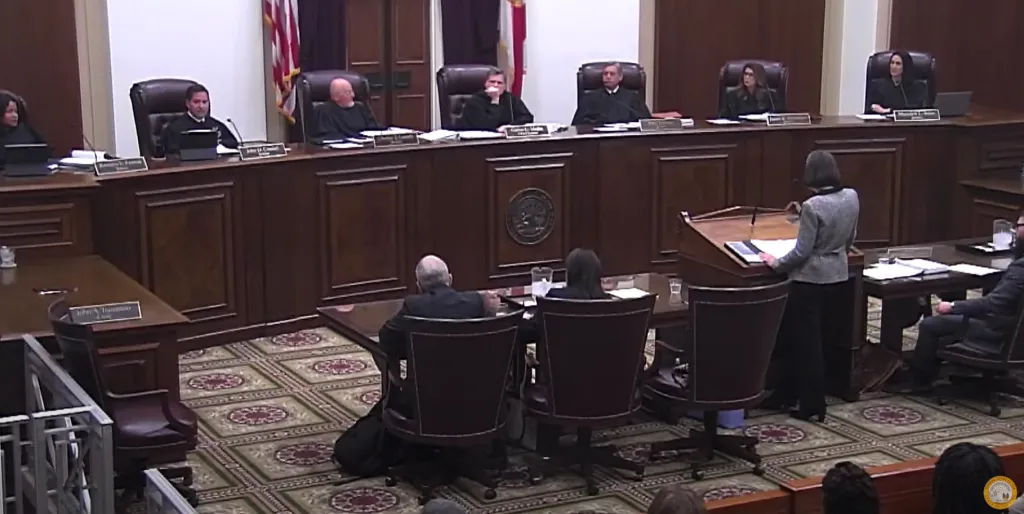In a significant ruling, the Florida Supreme Court has sided with Governor Ron DeSantis, denying the reinstatement of former state attorney Andrew Warren.
The decision marks a pivotal moment in the ongoing legal battle between Warren and the governor, highlighting the contentious dynamics of executive power and judicial oversight.
Background
Andrew Warren, the former state attorney for Florida’s 13th Judicial Circuit, was suspended by Governor DeSantis in 2022. The suspension stemmed from Warren’s public statements and policy decisions, which DeSantis claimed were inconsistent with his duties and Florida law.
Specifically, Warren had pledged not to prosecute certain offenses, including those related to abortion laws, which sparked controversy and led to his suspension.
The Legal Battle
Warren challenged his suspension, arguing that it was politically motivated and violated his rights. He sought reinstatement through the courts, asserting that his actions were within the scope of his prosecutorial discretion and that his suspension undermined the independence of his office.
The case ultimately reached the Florida Supreme Court, which was tasked with determining whether DeSantis had the authority to suspend Warren and whether the suspension was justified.
The Court’s Decision
In a majority decision, the Florida Supreme Court ruled in favor of Governor DeSantis, upholding Warren’s suspension and denying his request for reinstatement.
The court found that DeSantis acted within his constitutional powers and that the suspension was justified based on Warren’s public statements and policy positions.
The court’s opinion emphasized the governor’s broad authority to suspend state officials for neglect of duty and incompetence. It stated that Warren’s actions, including his refusal to enforce certain laws, constituted a valid basis for suspension.

Supporters of DeSantis
Supporters of Governor DeSantis hailed the ruling as a victory for the rule of law and executive authority. “This decision reaffirms the governor’s responsibility to ensure that state attorneys uphold the law,” said DeSantis spokesperson Christina Pushaw.
“Andrew Warren’s refusal to prosecute certain crimes was a dereliction of duty, and the governor’s actions were necessary to maintain law and order in Florida.”
Related Articles:
Community Leaders React to Biden’s Southern Border Security Plans
Dr. Phil Under Fire: Backlash Erupts Over Trump Interview
Thurmond Criticizes Sheriff Bianco for Endorsing Trump in Uniform
Warren and His Advocates
Warren and his advocates expressed disappointment with the decision, arguing that it sets a dangerous precedent for political interference in prosecutorial independence.
“This ruling undermines the ability of state attorneys to exercise their discretion and make decisions based on justice and fairness,” Warren stated. “It is a setback for democracy and the principle of separation of powers.”
Implications
The Florida Supreme Court’s decision has significant implications for the balance of power between the executive branch and the judiciary in Florida. It underscores the governor’s authority to suspend elected officials but also raises questions about the potential for political motivations behind such suspensions.
Legal experts suggest that this ruling could embolden similar actions by governors in other states, potentially leading to increased conflicts between state executives and prosecutors.
